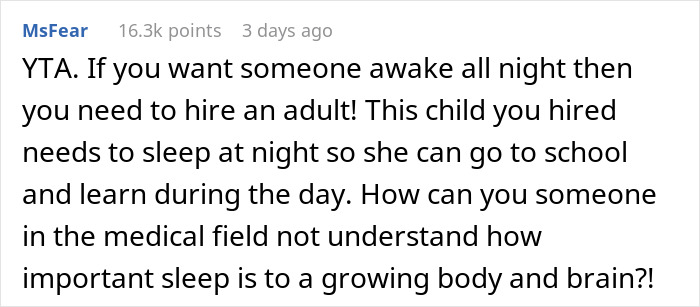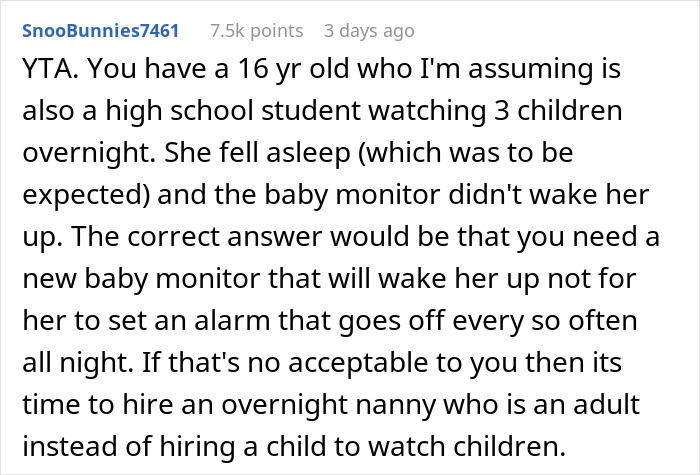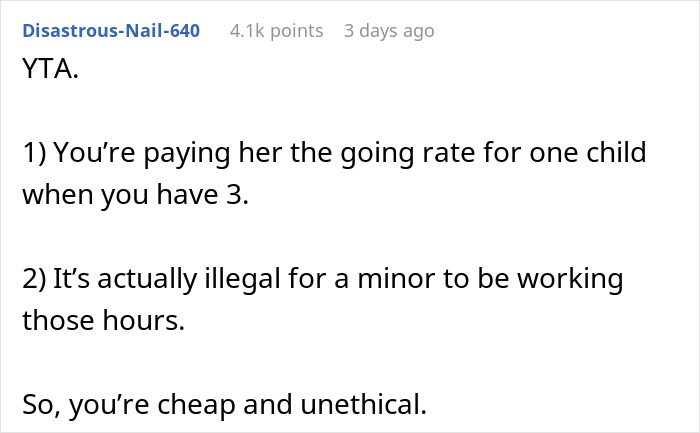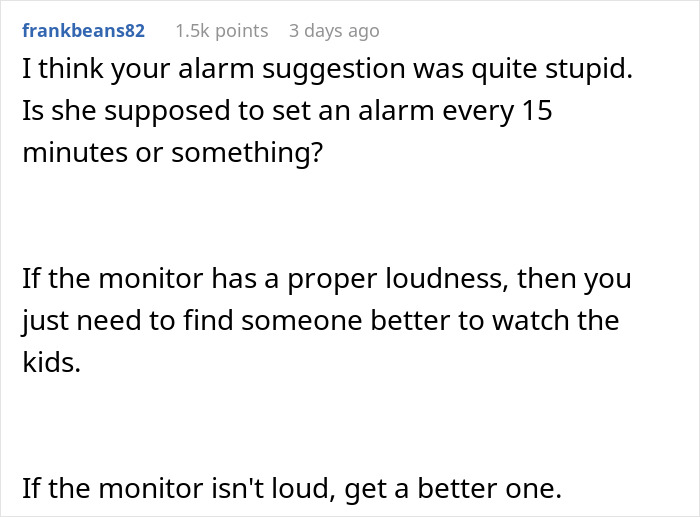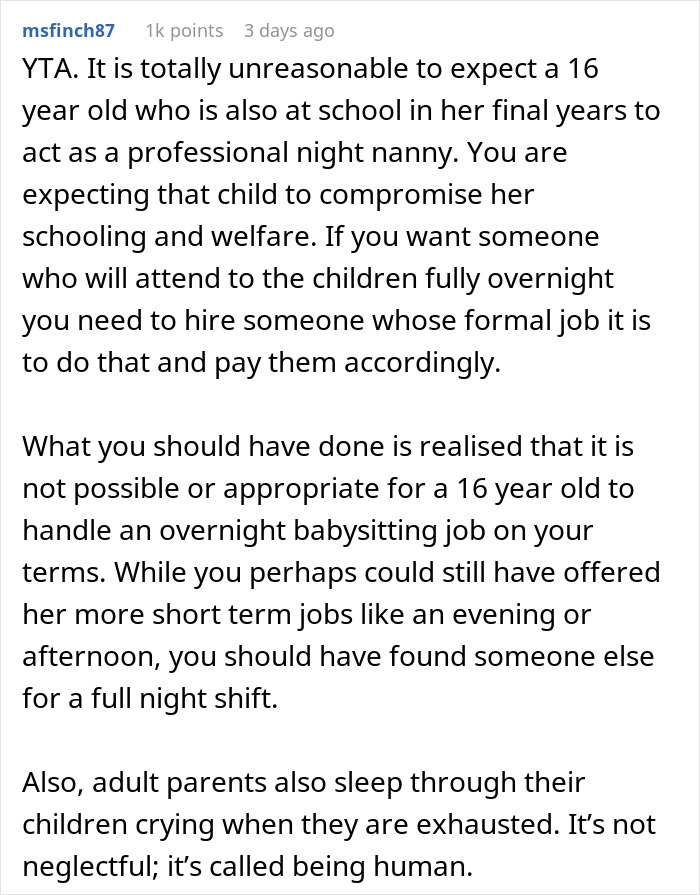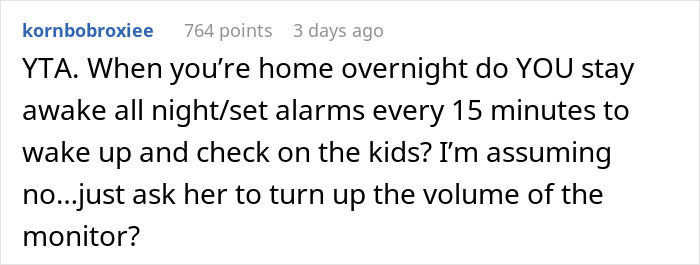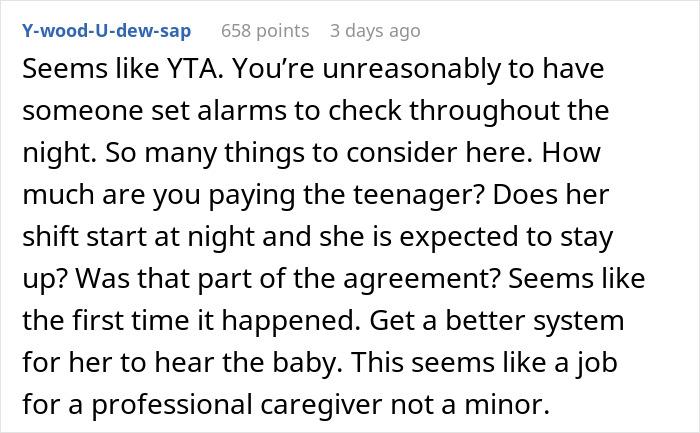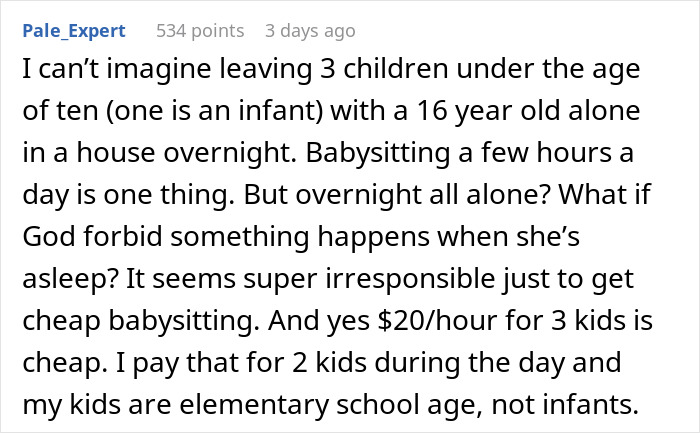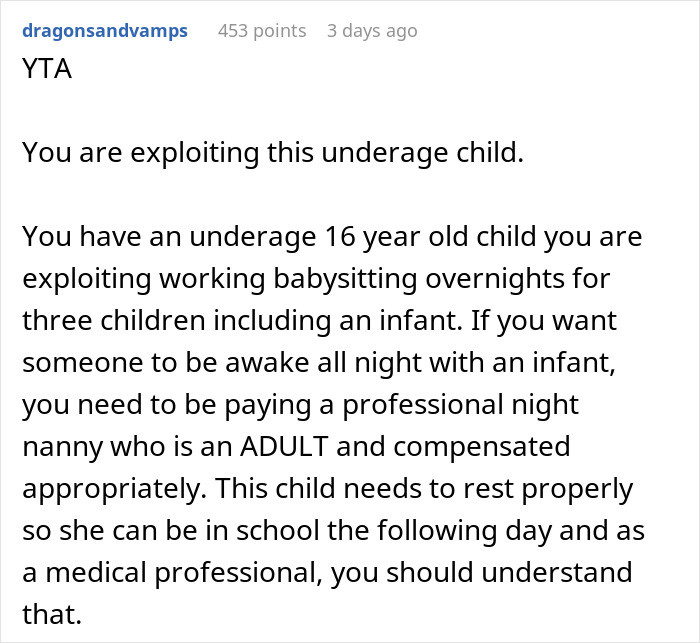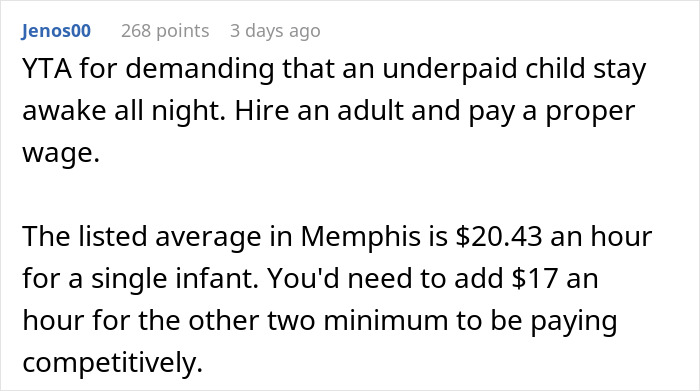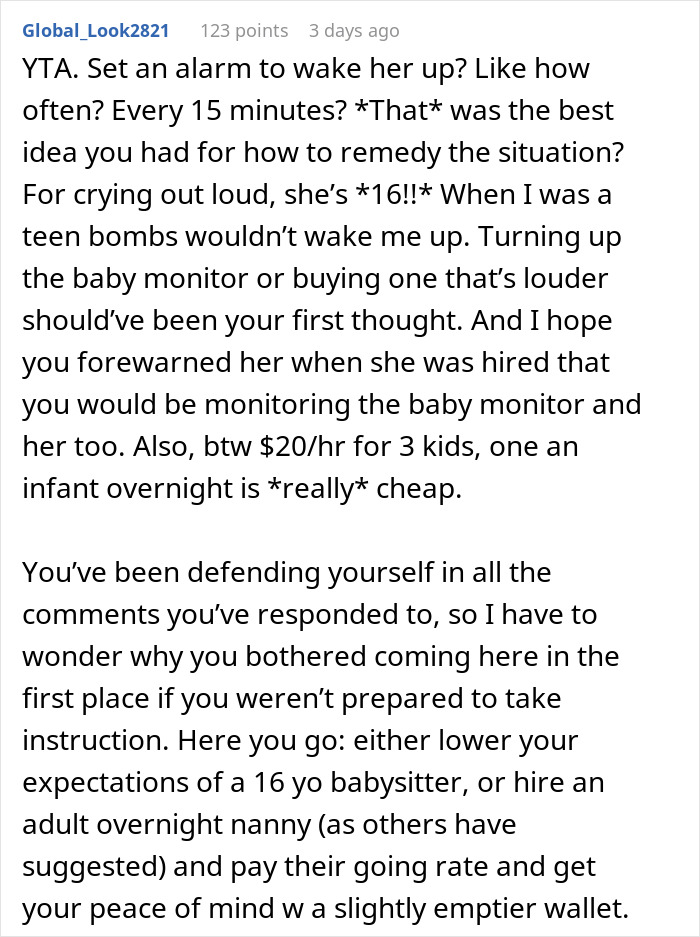When they can’t be with their children, every parent hopes to leave them with someone reliable. For many of them, that trustworthy person is a teenage neighborhood babysitter. However, they are limited in what they can do, which parents often forget.
Similar to this father, who left a 16-year-old to watch his three kids overnight. The job seemed simple enough, but staying awake was anything but. After the parent found out that the teenager dozed off and didn’t hear the baby crying, he decided to take action, which didn’t sit well with his wife.
Scroll down to find the full story and a conversation with parent coach and consultant Anastasia Goldak, who kindly agreed to give us some pointers on choosing a suitable babysitter.
A teenage babysitter might seem like a great option for a lot of parents

Image credits: Satura_ / envato (not the actual photo)
However, they might not always manage to abide by parent’s wishes, ending up in unfortunate situations
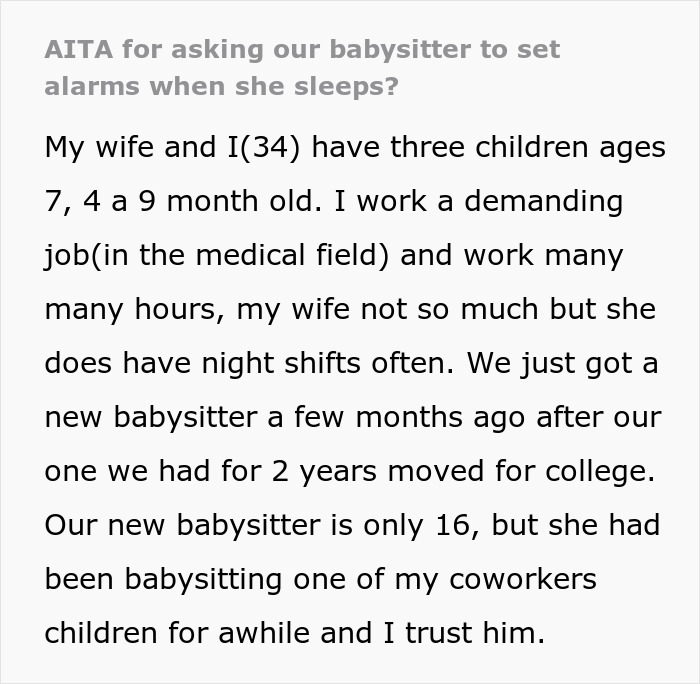
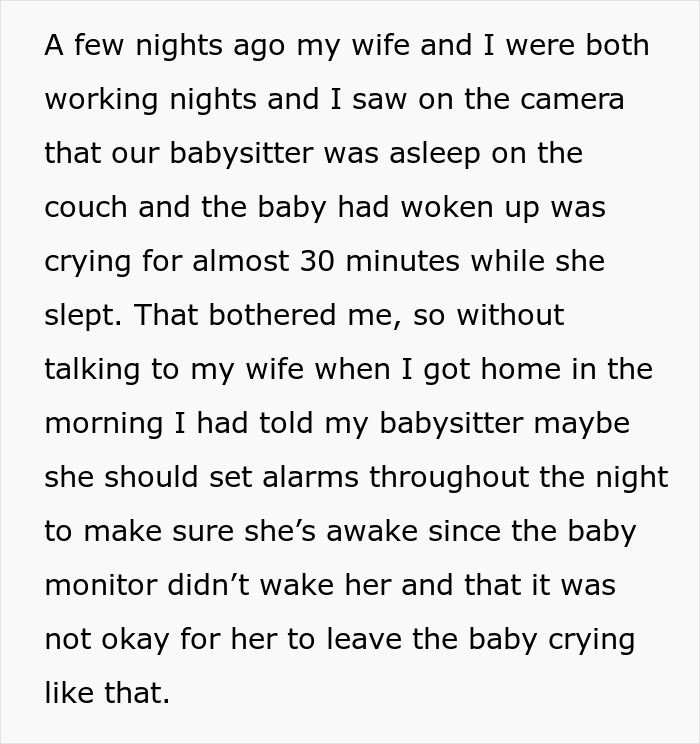

Image credits: Prostock-studio / envato (not the actual photo)
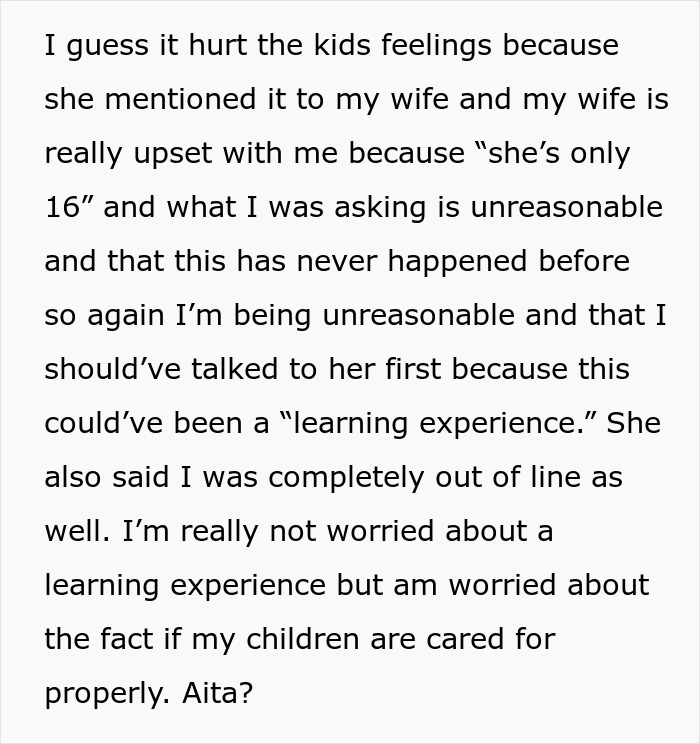
Image credits: One-Page5216
“While teenagers can be compassionate and well-intentioned, their brains are still developing”
Leaving the kids for a few hours with a babysitter can be nerve-wracking enough for some parents, but having them stay overnight is a whole different level of responsibility. Therefore, most experts agree that the person taking care of children through the night should be at least 16 years old. Even though in many countries like the UK, Australia, and Canada, there’s no minimum age to babysit, a lot can go wrong when a young child is left to take care of other kids.
Despite the recommended age of 16, there are still many other factors to consider when deciding whether a person is fit to provide childcare services. “Rather than focusing solely on a specific age, it’s crucial to consider the qualities and capabilities that any person entrusted with caring for small children overnight should possess,” said parent coach and consultant Anastasia Goldak to Bored Panda.
These qualities should include:
- Maturity: the ability to handle responsibilities and make sound decisions.
- Experience with kids: understanding child development, safety, and how to engage with children.
- Responsibility: being reliable, accountable, and committed to the child’s well-being.
- Self-sacrifice: prioritizing the child’s needs over personal comfort or desires.
- Impulse Control: Managing emotions and avoiding impulsive actions.
“While teenagers can be compassionate and well-intentioned, their brains are still developing,” explains Goldak. “The prefrontal cortex, responsible for decision-making, impulse control, and planning, isn’t fully mature until around age 25. This means that even the sweetest teenager may struggle with the demands of overnight childcare due to their brain’s limitations.”
She additionally notes that waking up for your own child is different from being a teenage babysitter. “Parental instincts kick in, and the bond between parent and child drives them to meet the child’s needs. Teenagers, on the other hand, may not have the same hormonal and instinctual responses. Their focus might shift due to their own developmental stage.”
Considering all these factors, she advises against giving teenagers such significant responsibilities. “Despite their best intentions, the risk of overwhelm is high. Instead, opt for more experienced caregivers who possess the necessary qualities and maturity to handle overnight stays with small children. Safety and well-being should always be the top priority.”
“Opt for a babysitter with experience in overnight care, as an experienced adult will be more reliable and know what to expect”
“Opt for a babysitter with experience in overnight care, as an experienced adult will be more reliable and know what to expect,” concludes Goldak.
To ensure comfort for the person who’s taking care of the kids, it’s a good idea for the parents to ask about their preferences, specific requirements, and how they can best rest during breaks. “Create a separate room or cozy spot where the babysitter can rest, as a quiet, comfortable space contributes to their overall well-being,” suggests the parent coach.
She also says, “Offering competitive compensation shows appreciation for their efforts and motivates them to provide excellent care.”
For those who might feel hesitant to ask for help from babysitters, Goldak reminds them that it’s totally fine to do so. “Parents need support. While babysitters may still wake up at night, it’s not the same as caring for a baby non-stop—they can rest and recover after their shift.
Remember the saying, “It takes a village to raise a child.” If you lack a physical village, it is absolutely fine to consider help from reliable babysitters. Also, for some of us, there is still an option to ask relatives or friends for help; sometimes, loved ones are more than willing to lend a hand. By prioritizing both your child’s care and the babysitter’s well-being, you create a positive environment for everyone involved, including yourself.”
The father’s tactics were questioned and shamed by the readers in the comments

